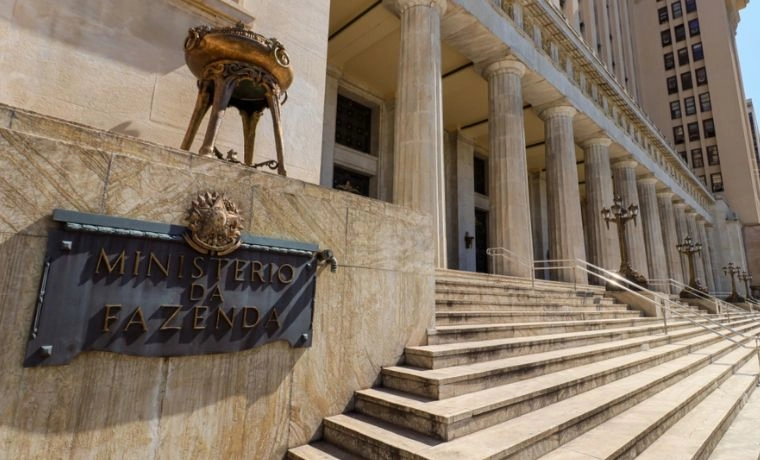Brazil Index of Multiple Deprivation (IMD: 48.88)
Brazil Information and Communication Technology Index (IDI: 45.0)
Brazil’s Digital Economy Overview
The Brazilian digital economy is a fast-moving and ever-changing scene that’s really important for getting a grip on where the country’s economy is heading. As a huge country with lots of differences between regions, Brazil’s path towards total digital transformation brings both huge chances and some tough challenges. For anyone interested in economics, diving into Brazil’s digitization gives a clear picture of its growth potential, how productive it can be, and how it can be better for everyone.
This article looks at different parts of Brazil’s digital growth, covering things like policies, tech setups, skill development, and advancements in various sectors. It aims to give a full picture of where the country stands now and where it’s headed in this digital era.
Mapping Brazil’s Digital Growth with the IDI Score
To really understand Brazil’s digital journey, it’s helpful to look at international benchmarks. While the way these indices, like the ICT Development Index (IDI), work has changed over time, they consistently show that Brazil is a rising digital player, though there’s a lot of room to grow. Brazil’s digital competitiveness is often compared to other countries, and this reveals where it shines and where there are gaps, especially in areas that are far-off or not well-served.
Even with good investment efforts, getting reliable connections everywhere is still a big hurdle for truly inclusive growth. Addressing these gaps is key to any digital inclusion strategy, mainly in a country as varied as Brazil. Programs aimed at boosting broadband access and improving digital skills are crucial for helping communities move from traditional economies into the digital world.
Digital Engagement and Skill Levels of Brazilian Students
The future of Brazil’s digital economy relies heavily on its people, especially focusing on the digital skills of its youth. Right now, the digital skills gap is a big worry, with schools needing to do their part in getting students ready for a job market that’s changing quickly. While many students in cities have decent access to tech, there are still major differences. For rural students, they often find it hard to get both devices and fast internet, which makes the divide even worse.
Bridging this gap means focusing on things like affordable internet and bringing digital skills into all parts of education. It’s no longer just nice to have but essential for taking part in today’s digital economy.
The State of E-Government Implementation in Brazil
Brazil has been making real progress with e-government services to boost efficiency, transparency, and how citizens engage. The Gov.br portal is a great example, acting as a one-stop shop for many federal services and making it a whole lot easier for Brazilians to navigate red tape.
However, there are still issues to tackle, like integrating different systems and ensuring everyone can participate fully in these digital services.
Modernizing Infrastructure and Connectivity
To build a strong digital economy, Brazil is working hard to upgrade its telecommunications systems. Initiatives like the Open RAN adoption show commitments to creating a more flexible and cost-effective network, moving away from reliance on just a few traditional vendors. Discussions about policies related to spectrum usage are also key, as they could greatly enhance broadband and 5G services.
All these efforts aim to close digital infrastructure gaps and ensure everyone has access to high-speed internet. Yet, integrating older systems remains a tough challenge that requires time and smart planning to bring them up to standard.
Data Governance and Regulatory Evolution
As Brazil continues its digital transformation, strong data governance becomes crucial. The implementation of laws like the LGPD (General Data Protection Law) is a significant move, aligning with global standards and building trust in digital services. Managing the huge amounts of data generated by the economy is essential for privacy and security.
Still, keeping up with tech changes means regulations need to evolve too, especially in booming areas like AI. Finding the right balance between fostering innovation and protecting public interests is a consistent duty for lawmakers.
Industrial Digitization and AI Adoption
Brazil’s industrial scene has also changed a lot with the rise of Industry 4.0. The government has laid out ambitious goals, knowing that increasing efficiency and competitiveness is not just good for business but vital for the economy as a whole. Supporting programs encourage businesses to explore new technologies like automation and AI.
However, the journey is uneven; how quickly different industries adopt these technologies varies widely, meaning some sectors are ahead of others.
Unleashing Fintech and E-commerce Growth
Brazil’s digital economy is rapidly growing, especially in the realms of e-commerce and fintech. The rise of mobile technology has opened up financial services to many who previously had limited access. However, challenges still exist, especially with regional disparities in how e-commerce activities are concentrated in larger cities.
Efforts are needed to promote fintech solutions in rural regions so that all communities can access necessary services.
Conclusion
To sum it up, Brazil’s level of digitization shows both progress and challenges. Advances in e-government, fintech, and upskilling are notable, yet gaps in infrastructure and the need for regulatory reforms can’t be ignored. With a strategic focus on digital initiatives like the AI for the Good of All Plan, Brazil can make great strides in creating an inclusive digital future.
Understanding these changes is crucial for anticipating how Brazil’s economy will shape up in the global digital scene going forward.
